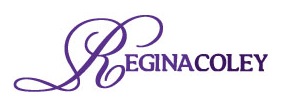Teaching and learning are rapidly evolving thanks to advancements in technology. Among the most intriguing developments is the Metaverse, a concept that describes a digital universe made up of interconnected virtual worlds where real and virtual goods can be exchanged.

A Promising Path to Transparency
The metaverse is a virtual space where you can experience and interact with others, in contrast to the digital world of computers and smartphones. Unlike the digital world, which is created by software and controlled by corporations, the metaverse operates on a blockchain network where users are connected through cryptocurrencies like Bitcoin or Ethereum. Blockchain technology provides transparency because it’s decentralized; data is stored across multiple nodes, so there’s no single point of failure—and no one entity can control what happens there.
This makes the metaverse an ideal place for education: it means teachers can provide students with their own decentralized profile where they can share resources with each other; there’s no need for costly textbooks or physical classrooms anymore! In fact, many schools have already begun experimenting with virtual reality headsets (VR) as an alternative form of learning that gives students access to distant classes while still keeping them engaged at home or work.
All-in-One Access
With the advent of virtual reality, you can now immerse yourself in an environment that looks, feels, and acts like the real world. That means you can attend college classes without having to leave your home. You can do this by using a headset that lets you experience everything from lectures to lab sessions—and in some cases even socialize with other students.
Because VR education will be so immersive and realistic, it’s not hard to imagine how it could help students develop more skills than traditional educational methods do. One example is language learning: With VR simulations of foreign countries that allow for full sensory immersion, learners would be able to learn a new language in just a few hours rather than years!
The Opportunities of Virtualization
The Metaverse is a highly popular concept in science fiction and video games, but it’s also rooted in reality. The term “metaverse” refers to the idea of virtual worlds that exist alongside our own—a kind of parallel universe. The metaverse has many potential applications for education, including as a platform for teaching students about history and geography; allowing them to participate in simulated experiments; and even providing immersive environments for learning more practical skills like coding or cooking.
In this article we will explore some of these opportunities, focusing on how virtualization can help educators create more engaging educational experiences for students without having to compromise on quality or safety concerns (for example: no one wants their child playing at home alone with knives). We’ll also discuss what it takes for VR/AR technologies such as these to become widespread among teachers and administrators.
The Metaverse, as a virtual world with educational capabilities, has the potential to enable access to information and education on a much larger scale than traditional methods.
The Metaverse, as a virtual world with educational capabilities, has the potential to enable access to information and education on a much larger scale than traditional methods. In this way, it could be used to establish an online education system that would be more accessible and affordable than existing options. Additionally, by using VR technology in their classrooms, teachers will have new ways of teaching students about complex topics in physics or chemistry by allowing them to experience those concepts first-hand. Teachers can also use it as an alternative method for teaching second language acquisition or even English as a foreign language courses if they are unable to travel abroad due to financial constraints or other reasons.
We’ve explored a lot of exciting developments in the Metaverse that will change the way people experience education. With the help of powerful technologies such as extended reality, we’ll be able to teach and learn in entirely new ways. We’ll have access to immersive learning environments that allow us to explore distant places and times without leaving our homes. And by merging real-world experiences with virtual activities, we’ll be able to tailor instruction in unique ways for each student. It’s difficult to know exactly how this future will unfold—but looking at these examples, it seems safe to say that it will be an incredible one for students everywhere.
